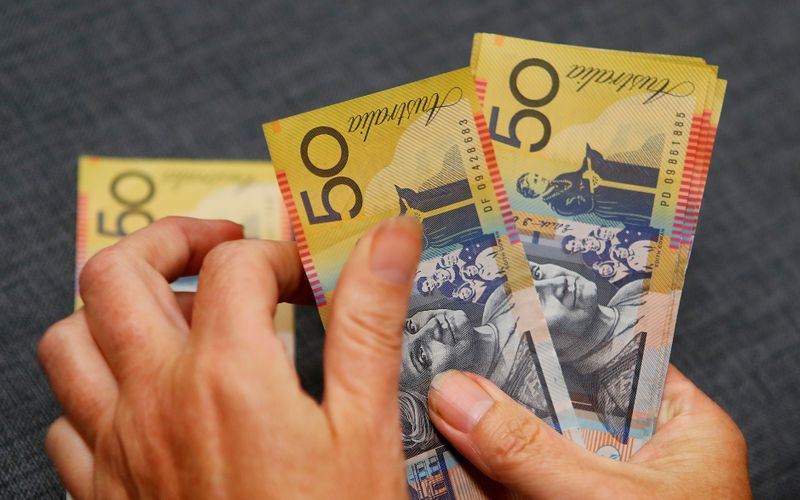By Hideyuki Sano
TOKYO (Reuters) - Risk currencies steadied on Wednesday as investors took stock of the economic damage from the outbreak of the coronavirus originating in China, with focus on Hong Kong shares that will resume trading later in the day after the Lunar New Year break.
As countries step up efforts to contain the spread of the deadly new virus, flight-to-quality bids in safe-haven currencies such as the yen and the Swiss franc subsided for now.
The Australian dollar fetched $0.6758 , steady on the day and a tad above from Tuesday's 3 1/2-month low of $0.6737.
The offshore yuan traded flat at 6.965 yuan per dollar , off Monday's 6.9900 to the dollar, which was its weakest in almost a month.
While mainland Chinese markets will remain shut this week, markets will open in Hong Kong, where a lot of Chinese firms are listed, on Wednesday.
The euro stood at $1.1021 (EUR=), having hit a two-month low of $1.0998 in U.S. trade on Tuesday.
That helped to lift the dollar index (=USD) to a two-month high.
The yen traded at 109.16 yen per dollar , off Monday's three-week high of 108.73. It posted its first loss in five days on Tuesday.
President Xi Jinping said on Tuesday that China was sure of defeating the "devil" coronavirus while international alarm was rising as the outbreak spread across the world.
"The number of patients and death toll is rising day by day, nor do we know when vaccine will be ready," said Daisuke Uno, chief strategist at Sumitomo Mitsui Bank.
"Yet, at the very base of market there is underlying optimistic sentiment, limiting risk-off moves," he said.
Behind investors' tolerance of risks are their expectations of policy support from the world's central banks.
The U.S. Federal Reserve has cut interest rates three times last year and expanded its balance sheet rapidly after ructions in U.S. bond repo market, a key dollar funding market, in September.
The Fed is expected to keep its policy on hold later on Wednesday and is likely to repeat its mantra that a "material reassessment" of the economic outlook would be required for any change in interest rates.
But some think a mere mention of risks from the coronavirus may spark speculation the Fed could dole out more stimulus if the U.S. economy is hit by fallouts from the outbreak.
Elsewhere, sterling traded at $1.3028 , off one-week low of $1.2976 set on Tuesday, capped by worries about Britain's future relationship with the European Union.
Prime Minister Boris Johnson's decision to grant Huawei a limited role in Britain's 5G mobile network is also said to have undermined the currency.

Traders feared the move may frustrate the United States, which is trying to exclude the Chinese telecoms giant from the West's next-generation communications, putting the future of any U.S.-UK trade pact in doubt.